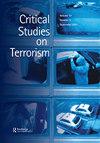Twisted Words: Torture and Liberalism in Imperial Britain
IF 2.5
Q2 POLITICAL SCIENCE
引用次数: 0
Abstract
events exactly as they will happen, but rather being able to visualise in the long term where terrorism may be going. In agreement with one of the key tenets of CTS and Blumenhau in Chapter 6, the importance of long-term studies in terrorism, not limited to the field of historiography, cannot be over-emphasised, even more so in the Anglosphere research scene, which tends to (unfairly) prize research aimed at fixing immediate symptoms, but not the issues dating back to the roots. In fact, Blumenhau’s Chapter 6, about how historians should not only take to heart the lessons of the past but should in fact be able to “predict the past” itself, is remarkably close to another of the tenets of CTS methodology, looking at past evidence with new perspectives. The cases discussed in this collection, and the debates which framed them, can teach one important, even if apparently obvious, lesson: complex issues that span decades cannot be fixed in a fortnight, despite the infatuation of policymakers with displaying immediate responsiveness to events. As I mentioned before, this collection’s original aim is to fill a lacuna in the discipline of historiography. However, its contents are useful to CTS, or indeed any, researcher dealing with terrorism. While it may not be explicitly stated as a goal, the collection does demystify and deconstruct some of the major discourses affecting the study of terrorism. In fact, I’d argue that is the most interesting part of the book, notwithstanding the specific case studies. The emphasis on semiotically charged concepts and definitions, which could almost be considered as elevating “terrorism” to the “concept-metaphor” status; retrospective analysis and prominence on interdisciplinarity resonate well with the idea that only a collective effort of scholarship can provide answers to “wicked issues” that affect humanity.扭曲的话语:大英帝国的酷刑与自由主义
确切地说,事件将会发生,但更重要的是能够预见恐怖主义的长期发展方向。与CTS和Blumenhau在第6章中的一个关键原则一致,长期研究恐怖主义的重要性,不局限于史学领域,不能过分强调,在英语圈的研究场景中更是如此,这往往(不公平地)奖励旨在解决直接症状的研究,而不是追溯到根源的问题。事实上,Blumenhau的第6章,关于历史学家如何不仅要牢记过去的教训,而且实际上应该能够“预测过去”本身,与CTS方法论的另一个原则非常接近,以新的视角看待过去的证据。本书所讨论的案例,以及围绕这些案例展开的辩论,可以给我们上一个重要的、即便是显而易见的一课:尽管政策制定者痴迷于对事件立即做出反应,但跨越数十年的复杂问题不可能在两周内得到解决。正如我之前提到的,这本合集的最初目的是填补史学学科的空白。然而,它的内容对CTS或任何研究恐怖主义的研究人员都是有用的。虽然这可能不是一个明确的目标,收集确实揭开和解构了一些影响恐怖主义研究的主要话语。事实上,我认为这是本书最有趣的部分,尽管有具体的案例研究。强调充满符号学色彩的概念和定义,这几乎可以被视为将“恐怖主义”提升到“概念隐喻”的地位;回顾分析和跨学科的突出与只有学术的集体努力才能为影响人类的“邪恶问题”提供答案的想法产生了很好的共鸣。
本文章由计算机程序翻译,如有差异,请以英文原文为准。
求助全文
约1分钟内获得全文
求助全文

 求助内容:
求助内容: 应助结果提醒方式:
应助结果提醒方式:


